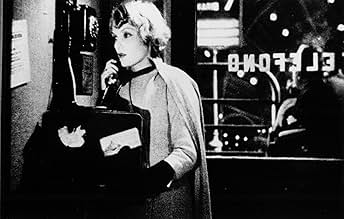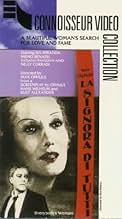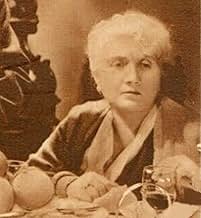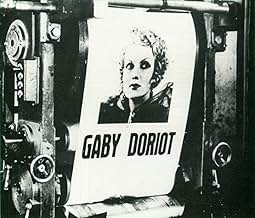In Max Ophuls'work,if you were born a woman,you were born to suffer.If there are exceptions,they are very rare : from "Liebelei" where a woman's true love was only a "liebelei" to "Sans Lendemain" where Edwige Feuillère was prisoner of a racy past to "letter from an unknown woman " where Joan Fontaine 's love was in vain to the masterpieces of the fifties "Madame de" and "Lola Montès" .Even in the much debated "De Mayerling à Sarajevo" the historic Sophie Chotek (Feuillère again) character was also a humiliated woman.
"La signora di Tutti" actually predates "Lola Montès" by twenty years:it's a long flashback after the heroine's suicide.The first sequences are nervy ,tense,the dialog begins with numbers and you soon realize they're talking about money.Isa MIranda portrays with talent a woman whose biggest fault is to be all along the film the right woman in the wrong place.Every man she loves leads her to a dead end : the music teacher,the businessman,his son.
Great scenes:the opera ,an imaginary way for the lovers to escape ;Ophuls's great fascination for the trains (see also "letter to an unknown woman" "De Mayerling à Sarajevo" and even the "la maison Tellier" segment in "LE Plaisir" in a comic way);Alma's tragic death ,the shadow of the wheelchair on the wall,the radio which Gabriella smashes ; and above all,the final pictures when the press slowly stops .
A strong influence on Mankiewicz ("Barefoot Comtessa" ),Louis Malle (" Vie privée")and on the melodrama genre (Sirk)
The flashback was not so innovative after all(the year before,Stahl did the same in "only yesterday" ) but the directing which sometimes has thriller accents (the scene when the heroine hears a radio nobody can't hear would not be out of place in a psychological suspense;ditto for the wheelchair scene in the night which is really awesome.



























